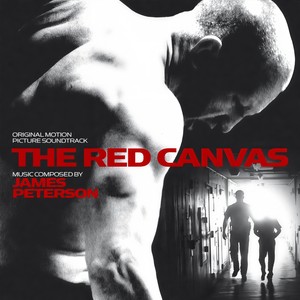
The Red Canvas (Original Motion Picture Soundtrack)
- 流派:Soundtrack 原声
- 语种:其他
- 发行时间:2009-11-03
- 唱片公司:Moviescore Media
- 类型:录音室专辑
- 歌曲
- 时长
简介
In this day and age of film composition, it is indeed an uphill battle for any composer to stand out, especially ones that are just making their way into the big ring. More and more composers are being asked to compromise lest they find their music ejected from its respective film to be replaced with safer, less obtrusive underscore. There's also the question of ability. Should there even be an opportunity, would the composer possess the skills to write music with bold melodies, lush harmonies, and a confident grasp of orchestration? In the case of James Peterson's score to The Red Canvas, the answer is a resounding "yes". There are themes. There are ear catching harmonies, and there are strong, epic orchestrations with a particular emphasis on rapid fire brass writing that has been largely absent from mainstream scores these days. Is this music innovative? Well, no and yes. Like Johnny Greenwood's score to There Will be Blood, the innovation lies in the marriage of music style with its cinematic narrative. That, and the confident, deft manner the score has been written in. If one were to catch a trailer for The Red Canvas, they would hear a soundtrack littered with the ubiquitous death metal repertoire that is endemic to this genre of film. This is the normal musical tapestry that lines this type of film. Peterson's approach is largely regressive back to a time when all movies were treated with a higher musical aesthetic and it's great to hear its return. What is particularly striking about The Red Canvas is the stunning balance of Rosza like brass fanfares, '60s jazz orchestral harmonies coupled with emotive string elegies that evoke the somber pathos of Sam Barber's work or even Gustav Mahler's symphonies. Yet Peterson is able, with his keen sense of architectural design, to bind these various idioms together to give the listener a sense of dramatic cohesion. Like John Williams, Peterson modulates from one style to another but retains the central thematic figures by dressing them appropriately to what the scene calls for. So, instead of having a bunch of unrelated musical moments, he give us 4 chief ideas and recapitulates them by re-harmonizing them, varying their arrangement, tempi, and rhythms so the overall impact is that of listening to a singular journey. For soundtrack fans, this is exactly what got many of them into listening to film music in the first place and what has been so sorely missing from most scores in our modern day. The four central ideas are the Triplet motive (which most strikingly appears in the trumpet part in "Jazz Cafe"), the elegiac string theme that expands and yearns in "Death and Resurrection", the heroic/romantic theme that is recapped in the last third of Ballet for Brawlers, and the Rozsa influenced heroic theme. What's more, Peterson doesn't just like to spar with simple base triads or big minor chords. There's an emphasis on whole tones, 7th chords, even the use of the Octatonic scale. The latter is especially ingenious as it doesn't just function as a clever passing line in the winds or horns as found on "Awaiting the News", but is present in low string figure on the action tracks as a fundamental part of the harmonic structure. There's also the use of contrapuntal writing in the string elegies- lots of flowing motion in the inner lines that keep the listener captivated. The action cues are also deftly handled. Peterson must be commended for employing rhythmic ostinati as a means of achieving a kinetic sense of urgency. Whether it's on Jungle Rumble or the final 11 minute plus epic "Ballet for Brawlers", the melodic instruments are doing most of the work while percussion takes a back seat to embellishment allowing the brass and strings to musically impart the punishing battle of the two warriors. The array of jabs, kicks and leaps by the brass are about the most audacious, adventurous writing heard by this reviewer in a very long time. In truth, much more exposition could be penned about this wonderful score by James Peterson. It's that good. The music is so active and virtuosic that it leaves the listener in state of euphoric delight, their head spinning as if they had been in a scrap themselves. It must be pointed out that had Mikael Carlsson's MovieScore Media label not existed, a gem like The Red Canvas could have come and gone without any notice by fans of film scores, hungry for music this exciting to enjoy. Not only does MSM treat us to Peterson's epic film score, but also includes a concert piece entitled "Moving Images Suite" which is an 8 movement work that modulates through a series of genres, evoking various images and emotions. "Americana" is particularly enticing with its evocations of Gershwin, Copland, Barber, and other American musical idioms. The inclusion of this work also helps to illuminate a consistent stylistic sound of Peterson as well as show an overall adeptness for composition. It's easy for us jaded film score fans to dismiss The Red Canvas as a spectacular one-off but to hear another work that has the same adherence to form, melody, and harmony, cements the fact that Peterson is a composer that deserves his place in the ring with the proverbial heavy weights. The Red Canvas soundtrack delivers powerful blows and a knock out punch that packs quite a wallop. If Rosza, Herrmann, North and all of the other film score heavyweights were still with us, they would be on their feet cheering with delight at this score. -- David Coscina







